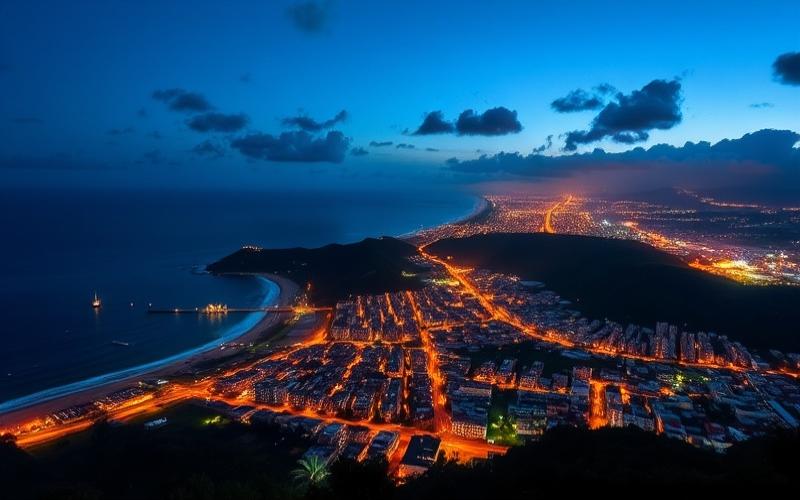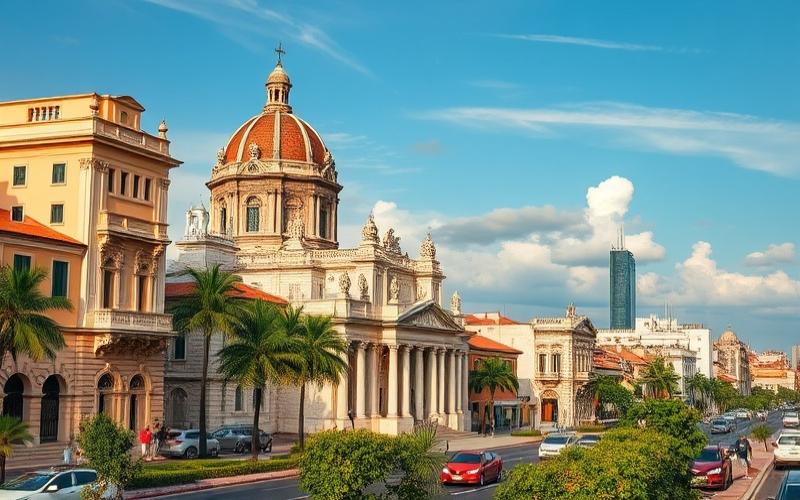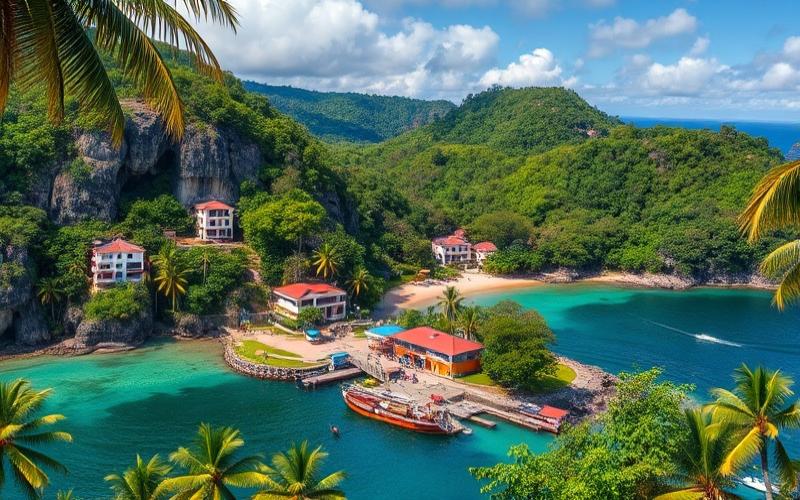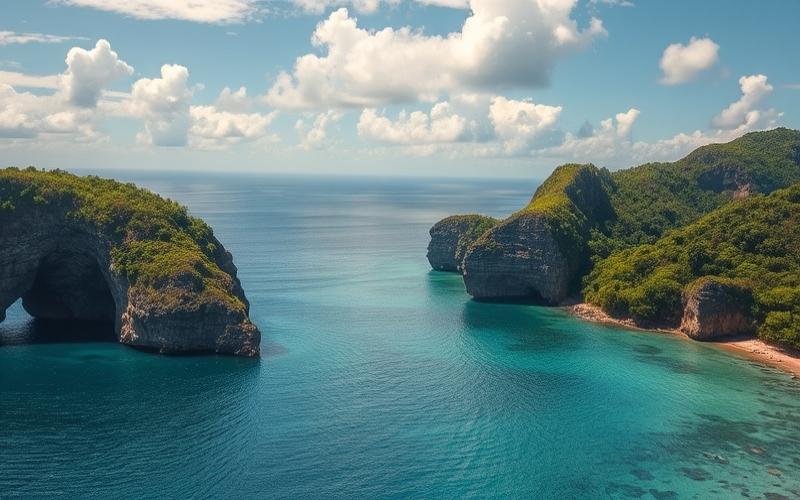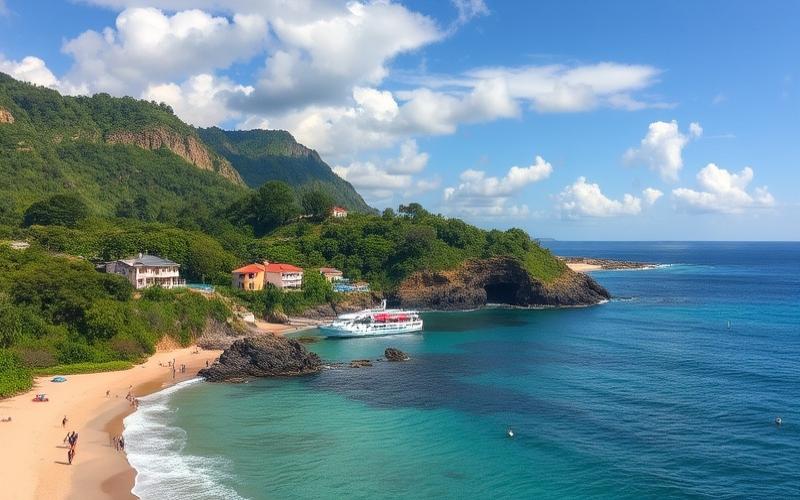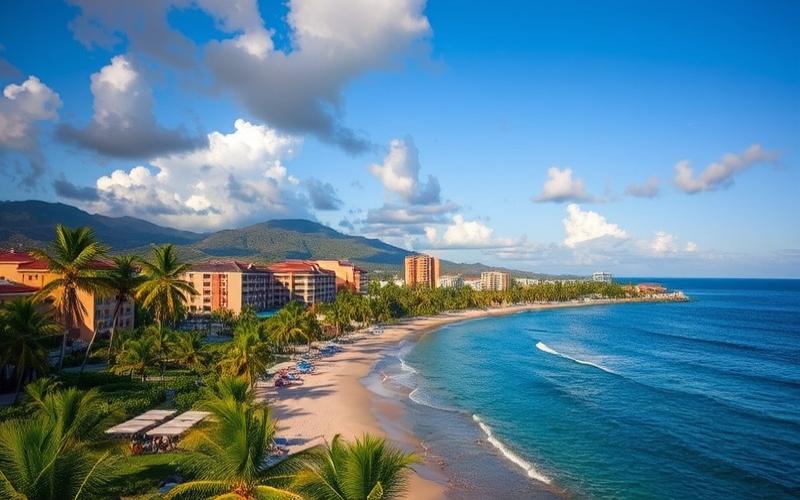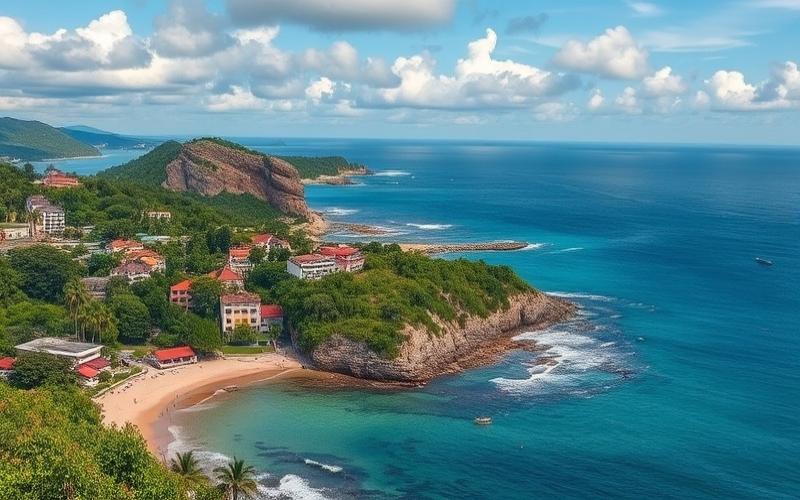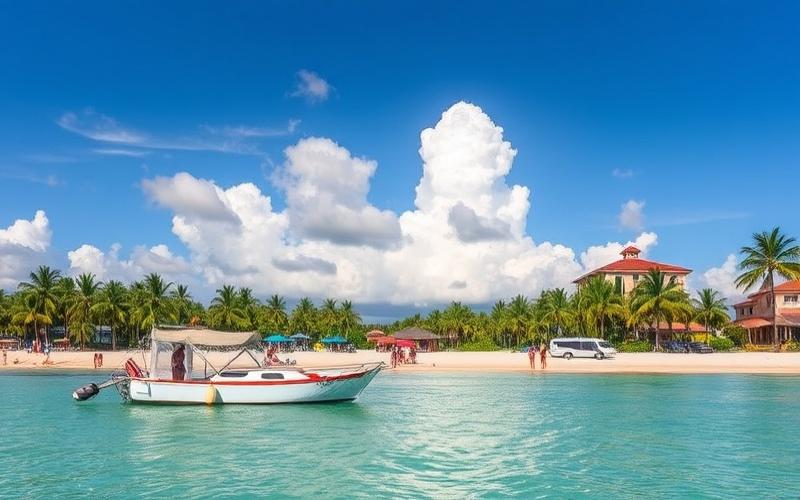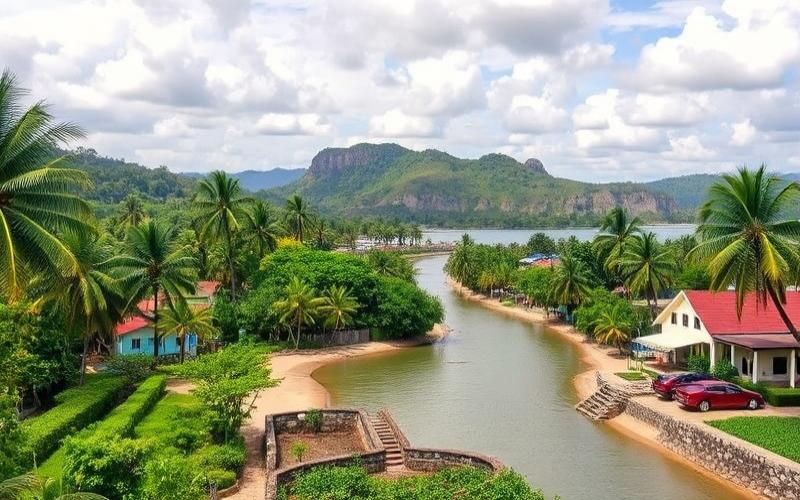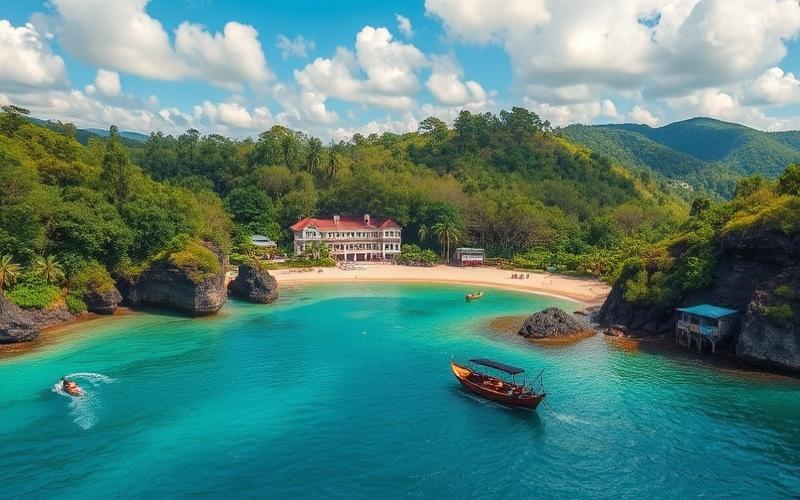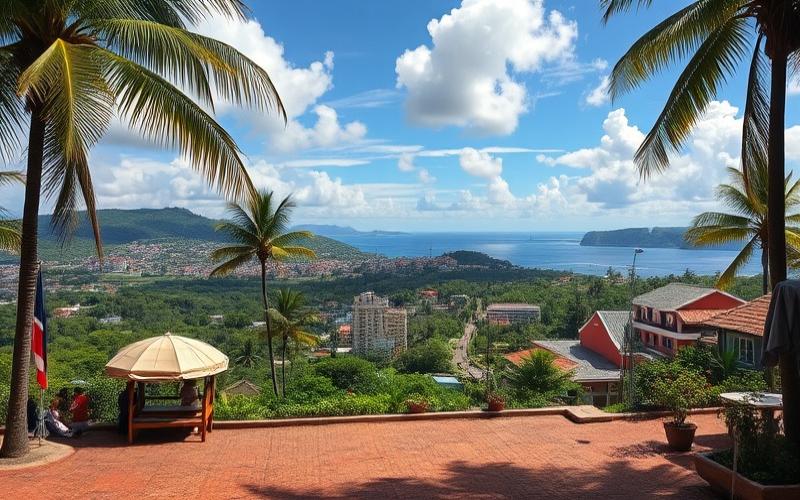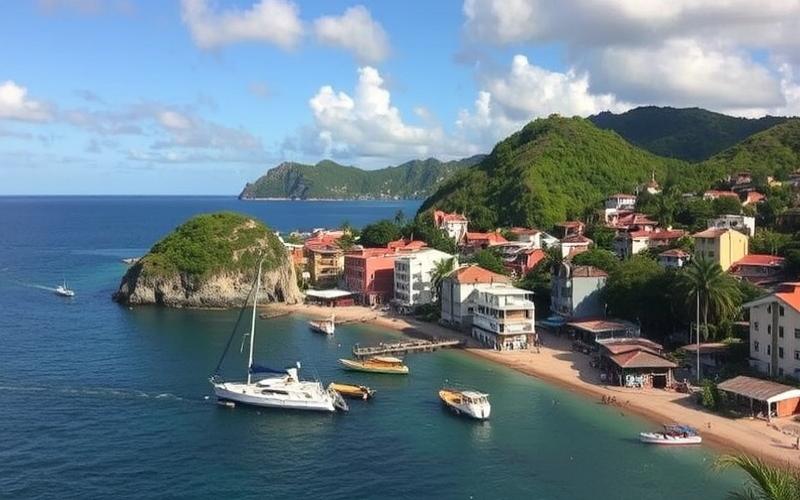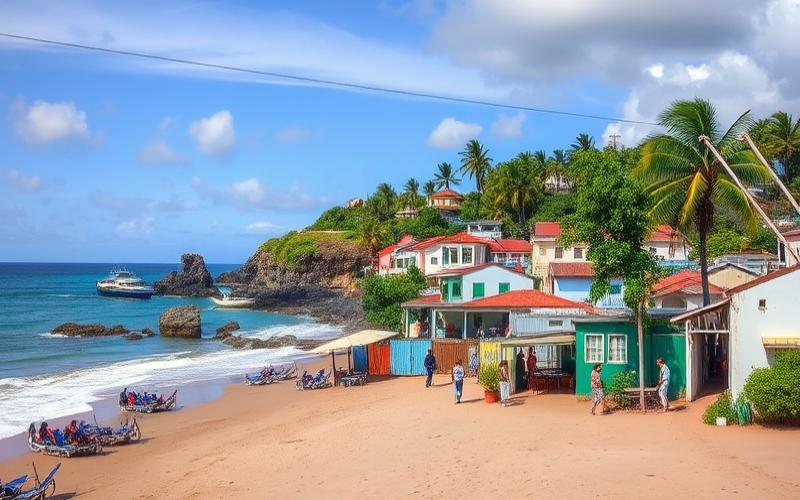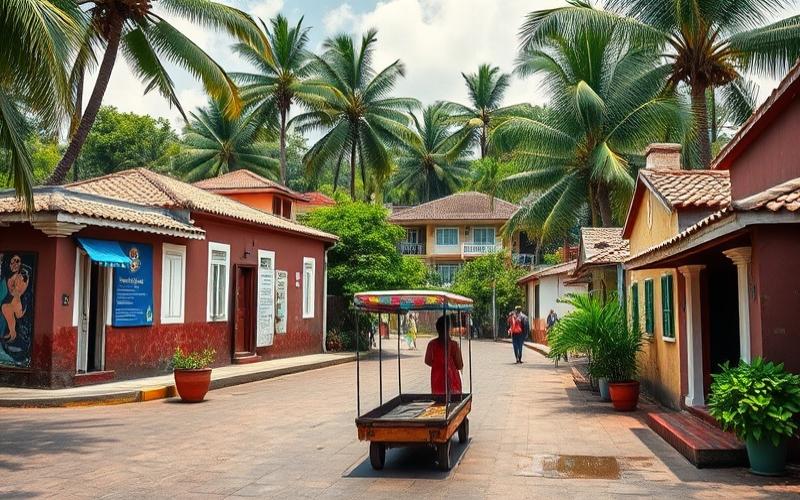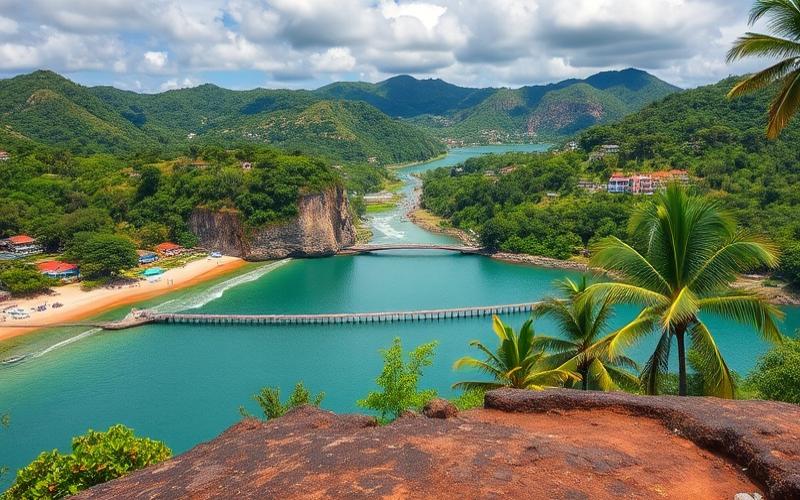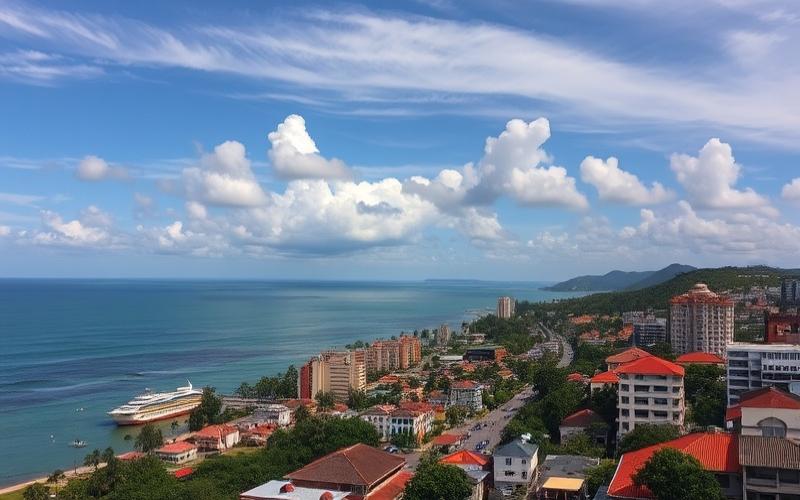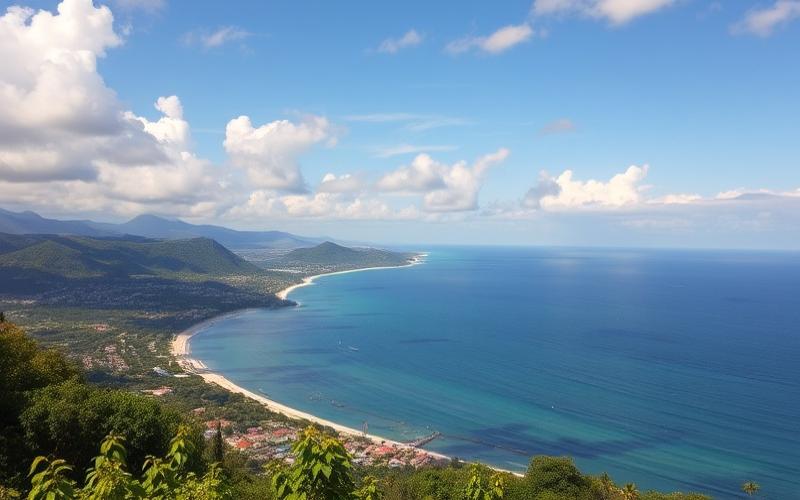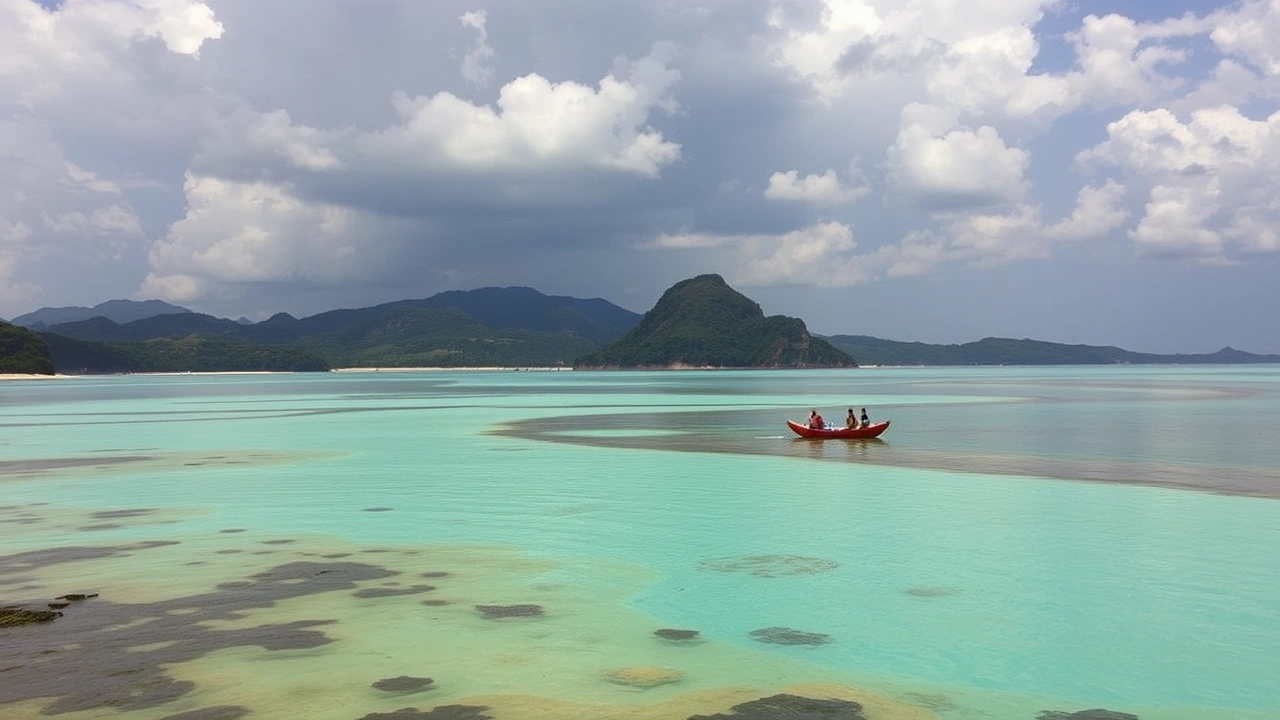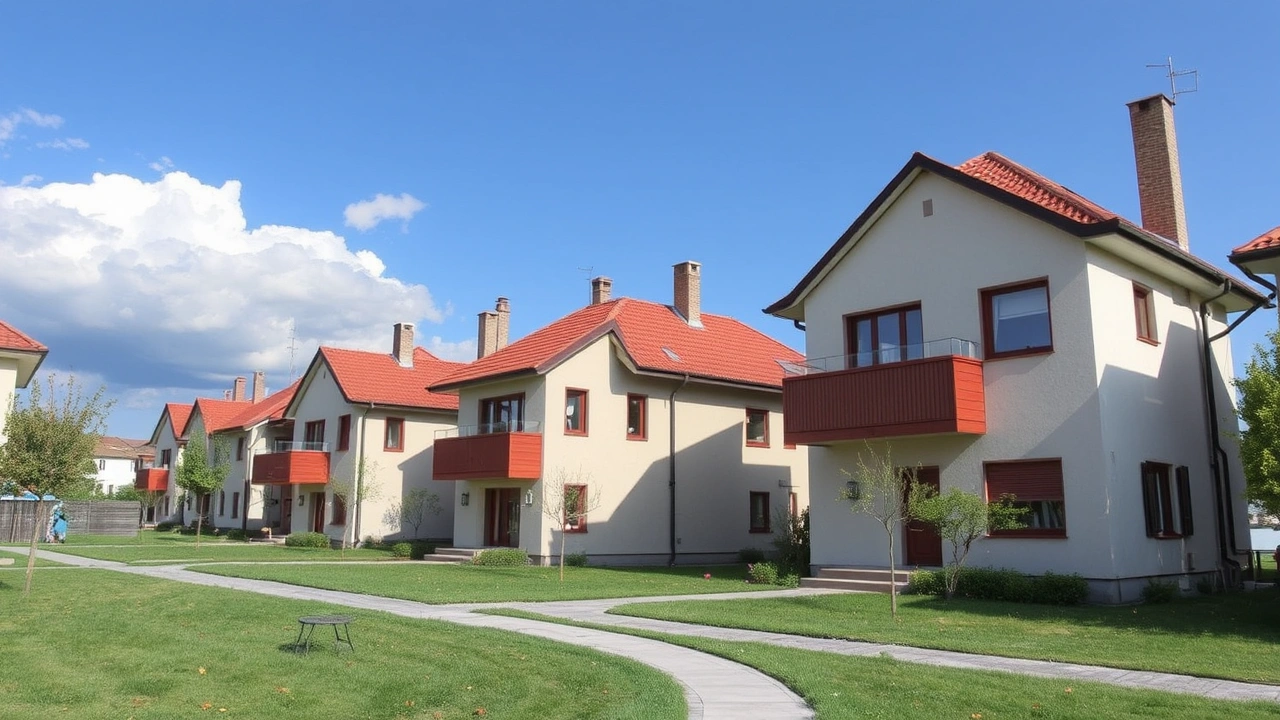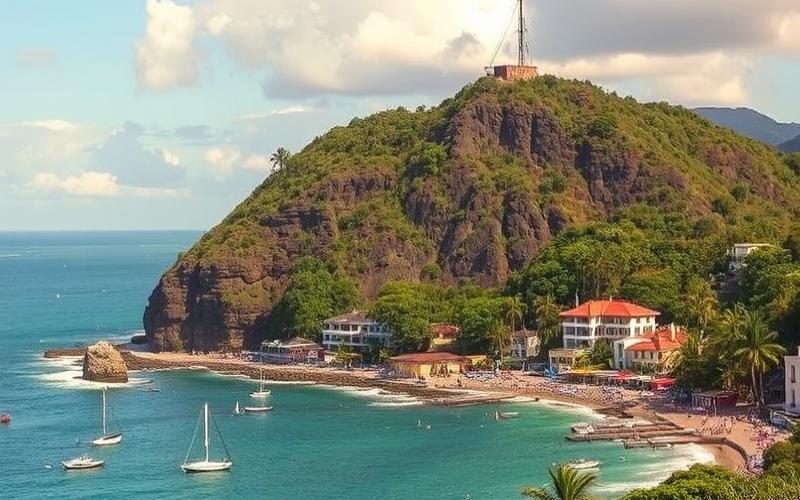
 Published on and written by Cyril Jarnias
Published on and written by Cyril Jarnias
The Role of Notaries and Associated Fees in the Dominican Republic
In a context where real estate investment attracts many foreigners to the Dominican Republic, a crucial aspect to consider is the role of notaries and the associated fees for transactions. This article will guide you through the complexities of the Dominican notarial system.
Essential Steps to Secure Your Investment
We present the essential steps to follow to secure your investment and understand the potential costs, often misunderstood by non-residents.
Understanding Legal Mechanisms
By demystifying these aspects, we aim to provide you with a better understanding of the legal mechanisms in force, for a worry-free purchase.
Good to Know:
Notaries in the Dominican Republic play a key role in the legal validation of real estate transactions. Their fees are generally between 1% and 2% of the purchase price.
Understanding the Notary’s Role in Real Estate Purchase in the Dominican Republic
The notary in the Dominican Republic acts as a public official and guarantees the legal security of real estate transactions. They assume personal liability for the documents they authenticate and can be held civilly, criminally, or disciplinarily liable in case of misconduct.
Main Legal and Administrative Responsibilities of the Notary:
- Verification of property title compliance.
- Checking for absence of mortgages, liens, or disputes affecting the property.
- Authentication of signatures and drafting of public deeds according to local standards.
- Official registration with the Title Registry or competent authorities.
- Preservation of original documents for future reference.
Notary’s Role in the Transaction:
| Step | Notary’s Specific Role |
|---|---|
| Preliminary Verification | Property examination, cadastral and legal control |
| Drafting | Preparation of the deed compliant with Dominican laws |
| Authentication | Official signature, public validation |
| Registration | Filing with the land registry to secure the transfer |
The Notary Acts as a Guarantor of Legal Security:
- Equitable protection of seller/buyer interests through impartial analysis.
- Proactive conflict prevention through legally binding authentic deeds.
- Assistance in strict compliance with local regulations (e.g., Torrens system for registered properties).
Local Specificities to Know:
- Difference between “sanear” properties (unregistered) and those under the Torrens system with state guarantees on title.
- Necessary involvement of a law firm specialized in real estate to navigate Dominican complexities.
Common Fees Related to Real Estate Notarization:
Fees vary according to property value but generally include:
- Fixed or proportional fees based on price (often between 1% and 2%).
- Administrative fees for land/cadastral registration.
- Government taxes specific to real estate transactions.
Practical Tips for Foreign Buyers:
Always consult a local specialized firm before any financial commitment: this allows for exhaustive prior verification.
Key points to check when collaborating with a notary:
- Ensure the professional is registered with competent Dominican authorities.
- Systematically request certified copies after each important document.
- Prioritize transparent communication about deadlines, estimated costs, tax obligations.
Documentary and regulatory vigilance is essential: any irregularity can compromise the acquisition. Therefore, using an experienced notary constitutes a crucial safeguard against any legal risk in this local context.
Good to Know:
In the Dominican Republic, the notary plays a crucial role in real estate purchases by ensuring the legal compliance of the transaction and authenticating necessary documents. They are responsible for verifying property titles, thus ensuring the property is free of any liens or disputes. The notary also proceeds with registering the sales deeds with competent authorities, providing legal security for both parties. Familiar with local regulations, the notary ensures compliance with Dominican laws specific to real estate, such as those related to property rights or construction. Notary fees, which often include a percentage of the sale price, must be anticipated by buyers. For foreign buyers, it is advisable to collaborate with a notary experienced in international transactions to navigate local specificities with ease and avoid potential legal pitfalls.
Notary Fees: What to Expect When Buying Real Estate
Composition of Notary Fees
Notary fees for real estate purchases in the Dominican Republic generally consist of two main categories:
- Government Taxes
- Transfer taxes (tax on property transfer): usually between 3% and 6% of the purchase price.
- Title transfer fees, collected by the State.
- Notary Fees
- Fees vary according to the complexity of the case, but they typically represent between 1% and 2% of the purchase price.
Concrete example for a $200,000 USD property:
| Type of Fee | Percentage Applied | Estimated Amount (USD) |
|---|---|---|
| Transfer Taxes | 3–6% | 6,000–12,000 |
| Notary Fees | 1–2% | 2,000–4,000 |
| Total Estimated | ~4–8% | ~8,000–16,000 |
Legal Procedures Involving the Notary
The notary’s role is central to all key legal steps during a real estate transaction:
- Verification of titles and cadastral certificates to ensure there are no mortgages or debts attached to the property
- Drafting and authentication of legal documents related to the sale
- Supervision or assistance with secure payment
- Official registration with local authorities after final signature
Main steps where the notary intervenes:
- Preliminary analysis: legal verification of the title.
- Drafting & public reading: preparation then official presentation before the parties.
- Signature & payment: collection and securing of funds necessary for the deed.
- Filing & registration: filing with Dominican land services for official update.
Possible Exemptions and Reductions
Some exemptions or reliefs exist in specific cases:
- Sale via company: using a company sometimes allows for optimization, as only the transfer of shares is registered, which can limit certain tax duties applicable directly on the real estate asset.
- Permanent resident status: residents with a cédula can be exempt from inheritance fees under specific conditions.
There is currently no generalized exemption for first-time buyers nor for investments in new properties; however, some real estate projects may occasionally offer partial or full coverage of administrative fees as a commercial incentive.
Regional Variations
Official scales are set nationally; therefore, there are no major differences between regions or cities regarding the rates applied to mandatory legal fees or government taxes. However, the variable part mainly concerns:
- Professional fees (notaries/lawyers), which may fluctuate slightly depending on geographic location (tourist regions vs. rural areas), but remain within a similar range (~1–2%).
Comparison with Other Countries
In the Dominican Republic, the total cumulative “administrative fees + taxes + professional fees” represents approximately 4% to 8%, which positions it as follows:
| Country | Average Total Percentage on Real Estate Purchase |
|---|---|
| Dominican Republic | ~4 – 8% |
| France | ~7 – 8% |
| Spain | ~10 – 13% |
| United States | variable (~2 – 5%) |
In the Caribbean/Latin America region, these rates are considered medium/low compared to traditional European markets (France/Spain). The cost remains higher than in some North American jurisdictions where only administrative costs are due without mandatory notarial intervention on each sale.
Key Takeaway
The buyer should plan for an additional 4% to 8% beyond the listed price for a standard real estate purchase in the Dominican Republic. These costs mainly cover local tax administration and the legal security ensured by local notarization.
Good to Know:
When purchasing real estate in the Dominican Republic, notary fees average 3 to 5% of the purchase price, including government taxes and notary fees. The notary intervenes notably to verify that property titles are in order and to finalize the contract. Certain categories of buyers, such as first-time buyers, may benefit from reductions or exemptions. Fees can vary significantly between regions, some being more expensive due to high demand. Comparatively, these fees are generally lower than in countries like France where they can reach up to 8%, but similar to other Caribbean nations.
Demystifying Hidden Costs of Real Estate Purchase in the Dominican Republic
Real estate buyers in the Dominican Republic face a series of hidden costs that can significantly increase the initial budget planned for property acquisition. These fees, often overlooked or underestimated, are detailed below.
| Type of Cost | Amount or Percentage | Remarks |
| Notary Fees | 1% to 2% of sale price | Preparation and registration of deeds |
| Property Transfer Tax | 3% to 6% of sale price | Varies according to property value |
| Registration Fees | Included in notary fees or separate | For inscription in property registry |
| Attorney Fees | Variable (generally 1% to 1.5%) | Often indispensable for legal verification |
| Appraisal Fees | 100 to 500 USD | Mandatory for financing or negotiation |
| Real Estate Agency Commissions | 3% to 5% of sale price | Charged to buyer or seller per agreement |
| Document Translation | Variable | If buyer is not Spanish-speaking |
| Annual Property Taxes | 1% to 3.3% of taxable value | To be planned each year |
| Management/Maintenance Fees | Variable (condo fees, etc.) | May include security, maintenance, pool, garden |
| Renovation/Furnishing Costs | Variable | Often underestimated, especially in older properties |
Main Recurring Management or Maintenance Costs
- Condominium fees (condos, secured residences)
- Garden, pool, common areas maintenance
- Homeowners insurance
- Annual property taxes
- Rental-related fees (property management, routine maintenance, compliance upgrades)
Essential Legal and Technical Verifications
- Thorough check of property title (Torrens system)
- Verification of any debts, mortgages, or easements on the property
- Technical building inspection to identify hidden defects or repair needs
- Compliance with local urban planning and construction rules
Why Are These Costs Often Overlooked or Underestimated by Foreign Buyers?
- Lack of knowledge about Dominican market specificities and local practices
- Incomplete presentation of fees by some unscrupulous intermediaries
- Enthusiasm for “love at first sight” purchases that overshadow rational budget analysis
- Poor comparison with tax or notarial systems from their home country
Tips to Anticipate and Integrate These Costs into Your Budget
- Request a detailed and itemized estimate of all fees from your lawyer or real estate agent
- Plan a safety margin of at least 10% of the purchase price for additional costs
- Exhaustively list all potential fees before signing any commitment
- Contact other foreign buyers who have completed transactions in the concerned region
- Perform all legal and technical verifications before purchase, even if it incurs additional short-term costs
It is crucial not to underestimate the impact of these hidden costs on the overall budget of a real estate purchase in the Dominican Republic: meticulous planning avoids unpleasant surprises and ensures investment success.
Good to Know:
When purchasing real estate in the Dominican Republic, it is crucial to account for hidden costs often overlooked by foreign buyers. In addition to notary fees, which can reach 1 to 2% of the sale price, local property transfer taxes, normally set at 3%, and registration costs, one must consider potential commissions for real estate agents, generally around 5 to 6%. Moreover, property management and maintenance fees, such as condominium charges or utility costs, can quickly accumulate and often come as a surprise. It is also essential to perform legal and technical checks before purchase to avoid unforeseen expenses, such as bringing the property into compliance with local standards. Often underestimated, these costs can be integrated into the purchase budget through realistic estimation and detailed consultation with a notary or local lawyer to effectively navigate the purchasing process.
Disclaimer: The information provided on this website is for informational purposes only and does not constitute financial, legal, or professional advice. We encourage you to consult qualified experts before making any investment, real estate, or expatriation decisions. Although we strive to maintain up-to-date and accurate information, we do not guarantee the completeness, accuracy, or timeliness of the proposed content. As investment and expatriation involve risks, we disclaim any liability for potential losses or damages arising from the use of this site. Your use of this site confirms your acceptance of these terms and your understanding of the associated risks.

